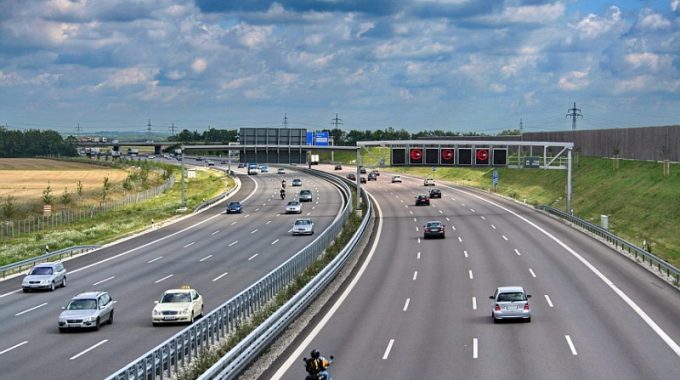
What charter for humanity? Defining the destination of ‘development’ (2/5)
After discussing about the Western presuppositions of ‘development’ (see first article), Dr Michael Schluter explores what other religions and cultures understand by ‘development’ in the second instalment of this Cambridge Paper.
A Cambridge Paper from the Jubilee Centre. (September 2006)
A cultural and religious critique
Literature on ‘development’ seldom takes into account cultural factors and how religious beliefs might define ‘the good’, or progress towards it. Before considering a Christian perspective, it is important to realise how other cultural traditions set their social priorities, and why they are critical of Western development thinking.
Africa
‘Those who ignore culture are doomed to failure in Africa… An appreciation of the role of religion in African life will require some fundamentally different approaches by the international community.’[1] For example, in African religious tradition there is little emphasis on individual betterment and self-fulfilment. Rather, the emphasis is on ujamaa (familyhood)[2] and harambee(pulling together):[3] the individual seeks the well-being of the extended family and local community rather than personal wealth.
Islam
The Islamic worldview significantly challenges Western priorities. The purists define development or progress in terms of Qur’anic ideals, a return to the Way of the Prophet, and the Islamisation of the state, which is necessary to complete the Islamisation of the individual. This may even involve economic hardship. The Islamic concept ofUmma(the Islamic community) transcends the modern nation-state. Another approach, adopted by more pragmatic Islamists, is to define socio-economic development as ‘a systematic problem-solving public policy, initiated and regulated by the state, which generates growth, but is also responsive to Islamic ethics and social justice.’[4]
Buddhism
The ultimate goal is conquest of the miseries of existence (dukkha); poverty is undesirable because it creates suffering. However, poverty encompasses a wider arena than purely material deprivation. A person is regarded as poor if they do not have qualities such as faith, morality, sacrifice and learning.[5] Human suffering can only be ended with the destruction of the roots of evil – which include greed, hatred and delusion. Buddhism, like Hinduism, does not comment directly on social change, technology and economics. However, ‘Engaged Buddhism’ is a contemporary movement of non-violent social and political activism whose roots are found in traditional Buddhist concepts such as interdependence, compassion, and meditation.[6]
Confucianism
Central to Confucianism is the Way (dao).[7] Finding the Way is the ultimate meaning of human existence. Harmony is achieved when the Way of Heaven (involving a Supreme Being) and the Way of Humans (concerned with the virtue of individuals) are fulfilled in each other. This encompasses the role of government in reducing conflict, in harmony in family relationships and harmony between humans and their natural environment. Tackling poverty is important because poverty leads, via discontent, to conflict.
What might such societies look like 100 years from now? If we reflect on the dramatically different destinations of these cultural and religious traditions we realise that, contrary to Western thinking, material outcomes are not the primary social goal for billions of people. So has the dominant Western concern with economic growth become a form of cultural imperialism? Is the emphasis on personal freedom, individual human rights, cultural diversity, mobility of labour and capital (along with lack of concern to preserve family identity, ethnic cohesion and religious practice) in tune with local cultural values? And are dysfunctional families and communities, sprawling cities, ethnic tension and secularism in truth unavoidable by-products of modernisation?
Michael Schluter
Dr Michael Schluter holds a PhD in agricultural economics from Cornell University (USA). He is the founder of the Jubilee Centre and the Relationship Foundation. He also worked as an applied economist for the World Bank.
With special thanks to the Jubilee Centre.
[1]African Commission Report, p.29, www.commissionforafrica.org/english/report/thereport/english/11-03-05_cr_report.pdf
[2]Julius Nyerere, Essays on Socialism, OUP, Dar-es-Salaam, 1968.
[3]A term coined by Jomo Kenyatta in Kenya to express African values.
[4]Ozay Mehmet, Islamic Identity and Development, Routledge, London and New York, 1990, p.10.
[5]P. D. Premasiri, ‘Religious values and the measurement of poverty: a Buddhist perspective’, www1.worldbank.org/prem/poverty/wdrpoverty/joburg/buddhist.pdf
[6]F. Eppsteiner, The Path of Compassion: Writings on Socially Engaged Buddhism, CF: Parallax Press, 1985.
What charter for humanity? Defining the destination of ‘development’ (1/4)[7]This paragraph on Confucianism is taken from Xinzhong Yao, An Introduction to Confucianism, CUP, 2000.

This Post Has 0 Comments